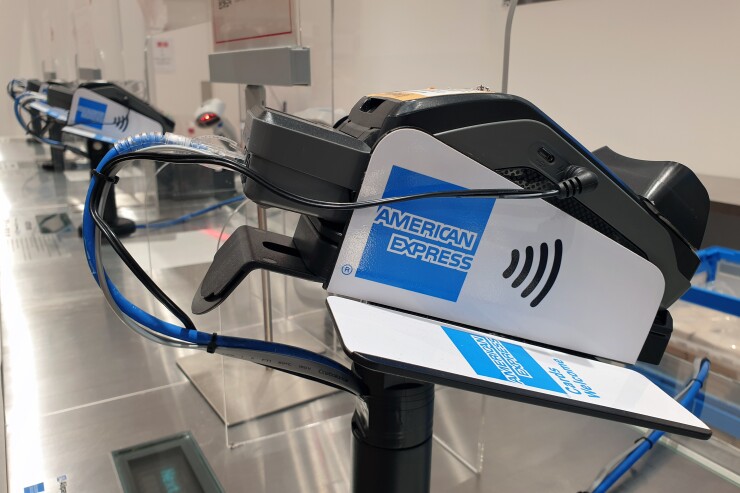The American Express Credit Account Master Trust is preparing to issue $285 million in asset-backed securities, secured by a pool of consumer credit card receivables amid slightly softening performances.
Known as AECAMT, the deal will issue two series of notes, 2023-1 and 2023-1 from the master trust. Both series will issue classes A and B notes, but in both cases only the class A notes will be publicly offered, according to a pre-sale report from Fitch Ratings.
The Asset Securitization Report's deal database notes that AECAMT's latest deal is slated to close on July 17, 2023, while Barclays Capital, Mizuho Securities and RBC Capital Markets are on the deal as managers. Meanwhile, Fitch noted that it expects to assign 'AAA' ratings to the class A notes, with various entities of American Express acting as originator, sponsor and servicer, as well as depositor and transferor, according to Fitch.
Both series 2023-1 and 2023-2 have proposed credit support of 12.50% on the publicly offered class A notes, according to Fitch. Meanwhile S&P Global Ratings, which will also assign 'AAA' ratings to the class A notes, points out that the class B notes provide credit enhancement to the class A notes, and have an enhancement level of 8.75% of the initial collateral amount in aggregate.
As for the collateral itself, the characteristics of the underlying accounts lean toward prime quality. Obligors with FICO scores of 760 or higher represent a majority, 55.03%, of receivables, while obligors with scores lower than 660 represent just 4.77% of the receivables in the collateral pool.
Accounts with a nonzero balance have an average balance of $4,467 and the average account balance for all accounts is $1,801, according to S&P. Accounts with credit limits of $10,000 or more generated 51.65% of the receivables, while pay-over-time accounts with no pre-set spending limits generated 41.19% of the receivables, S&P said.
The accounts are well seasoned, as all of them are aged 60 months or more, and of the accountholders 7.92% made minimum payments on their outstanding balances, while 66.9% made full payments, S&P said.






